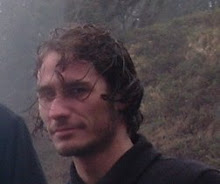Dear Roseburg,
I am not gay.
Sincerely,
Steve
That's so negative. It sounds condemnatory. Not to mention defensive.
Dear Roseburg,
I am not gay -- but it would be okay if I were.
Sincerely,
Steve
That's a little better but still problematic. The old "Not that there's anything wrong with that!" defense from someone who clearly believes there's something wrong with that.
Dear Roseburg,
My orientation is none of your business. However if you really must know, I prefer women. Not out of any kind of religious-authoritarian "morality," but mainly for aesthetic reasons. Women are prettier than men, their skin is softer, their kisses are sweeter. And yes, I know this from experience -- Because I'm not so afraid of society's condemnation that I am unwilling to explore the urgings of my own body.
Sincerely,
Steve
Okay, that is the best so far. But you know? I'm still bothered by this whole business. Why should I have to fit myself into a set of socially-constructed categories?
Dear Roseburg,
What do these terms, "gay," "straight," "bisexual" even mean? They are only words, and do not actually describe objective reality. We can know this, because we can point to cultures throughout history in which those words would have been useless. The Sambia of New Guinea, for example -- Were the men all gay, or bisexual, because of their belief that men could not produce their own semen and must -- ahem -- acquire it from some other source?
What we are ultimately talking about are the sexual urges, preferences and sources of pleasure of individuals. Historically, in the West, certain sex acts have been proscribed -- and the nature of the human libido seems to be such that within a given population, a given number of individuals will prefer these acts. Meanwhile the sexual urge is powerful enough and, indeed, important enough to the individual's psychological health and peace, that the proscription of such acts becomes a terrible burden on individuals, particularly when "proscription" includes the infliction of state-violence against individuals as had been the case throughout much of the Western world.
In the twentieth century we saw the emergence of identity politics as a means for large groups of individuals to counter state violence by creating a common identity and organizing to protect one another and change the laws that targeted all of them individually. Though this began with marginalized "racial" groups, it did not take long before these tactics were co-opted by others against whom state violence had been directed: Including those labeled "homosexual."
Individuals targeted by the state have the right to resist in any way they choose. Identity politics has proven an effective method of resistance, and no one can begrudge so-called "gays" and "lesbians" (and "bisexuals" and the "transgendered") the right to their employ. This does not change the fact that "gay" as an identity is an artificial, cultural construct, and not a thing in-and-of itself, an objectively verifiable component of concrete reality (inasmuch as there is such a thing). And for myself, I reject the idea that I must identify myself with an essentially hollow social category. Culture is produced and reproduced by individuals, and even when we don't see it, we all have the choice as to whether to participate in a given cultural construct's reproduction.
In this case, I choose not to participate. I look forward, rather, to a day when such labels are unnecessary and we are all free to love who we choose in the manner of our choosing, without fear of the law, without fear of those trembling authoritarians (i.e., homophobes) who prefer violence to love and would rather kill a man than see him live his life in the manner of his choosing.
Therefore, I am not gay.
Not that there's anything wrong with that.
Sincerely,
Steve
I think we've got it!

No comments:
Post a Comment